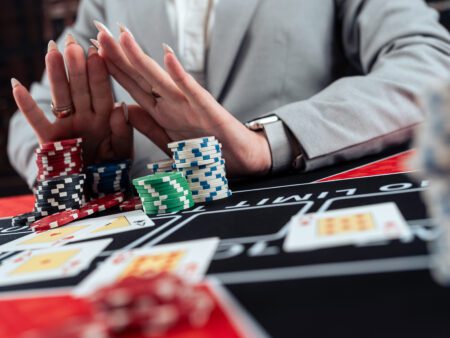Explore the psychological impact of slot games on players’ minds, including the allure of slot games, the element of randomness, the illusion of control, and the role of music and near misses.
The Psychology of Slot Games: Unveiling Their Impact on Players’ Minds
Slot games have become a popular form of online gambling, offering both entertainment and the potential for big wins. However, the bright lights, catchy music, and fast-paced gameplay of these games can have a profound impact on players’ psychology. In this article, we will delve into the psychology of slot games, exploring how they affect players’ minds and emotions.
The Allure of Slot Games
Before we delve into the psychology behind slot games, let’s first understand why they are so enticing to players. Slot games are designed to create a sense of excitement and anticipation, with their flashing lights, vibrant colors, and engaging sound effects. They offer the promise of instant gratification and the chance to strike it rich with just one spin.
Additionally, slot games often feature themes that resonate with players, such as adventure, mythology, or popular culture references. This adds an element of familiarity and connection, making the games even more appealing.
The Element of Randomness
One of the key factors that make slot games so captivating is their element of randomness. Unlike other casino games, such as poker or blackjack, where skill and strategy play a significant role, slot games are purely based on luck. This unpredictability creates a thrilling experience for players.
Research has shown that the human brain is wired to seek out patterns and make connections. The random nature of slot games taps into this natural inclination, keeping players engaged and hopeful that the next spin will lead to a big win.
The Illusion of Control
While slot games are primarily based on luck, they often give players a sense of control. This is achieved through features like the ability to choose the number of paylines, the amount to bet per spin, and the option to stop the reels manually.
This illusion of control can be addictive, as players believe they have some influence over the outcome of the game. It gives them a false sense of power, leading to increased engagement and a desire to keep playing.
The Role of Music and Sound Effects
Slot games are known for their catchy music and attention-grabbing sound effects. These auditory cues play a crucial role in enhancing the overall gaming experience and influencing players’ emotions.
Studies have found that certain types of music, such as fast-paced and upbeat tunes, can evoke feelings of excitement and pleasure. The rhythmic sounds of the spinning reels and the jingles that accompany winning combinations further reinforce positive emotions.
On the other hand, the absence of sound during losing streaks can create a sense of anticipation and motivate players to continue playing in the hopes of triggering a winning streak.
The Impact of Near Misses
One of the most intriguing psychological aspects of slot games is the concept of near misses. A near miss occurs when the symbols on the reels align in a way that is very close to a winning combination, but ultimately falls short. These near misses have been found to elicit strong emotional responses in players.
Research suggests that near misses activate the brain’s reward system, triggering a release of dopamine, a neurotransmitter associated with pleasure and motivation. This dopamine release reinforces the idea that a win is within reach, encouraging players to keep playing in the hopes of achieving a successful outcome.
Maintaining Emotional Control
Given the psychological impact of slot games, it is essential for players to maintain emotional control while gambling. Here are a few tips to help:
- Set a Budget: Before starting to play, establish a budget and stick to it. This will help prevent impulsive and excessive gambling.
- Take Breaks: Regularly take breaks during gaming sessions to clear your mind and prevent emotional overload.
- Mindfulness: Practice mindfulness techniques, such as deep breathing or meditation, to stay calm and focused.
- Seek Support: If you find it difficult to maintain control over your emotions while gambling, consider seeking support from friends, family, or professional counselors.
Conclusion
Slot games have a profound impact on players’ psychology, leveraging elements like randomness, illusion of control, music, and near misses to keep players engaged and entertained. By understanding these psychological mechanisms and employing strategies to maintain emotional control, players can enjoy the excitement of slot games while minimizing the risk of negative psychological outcomes.










